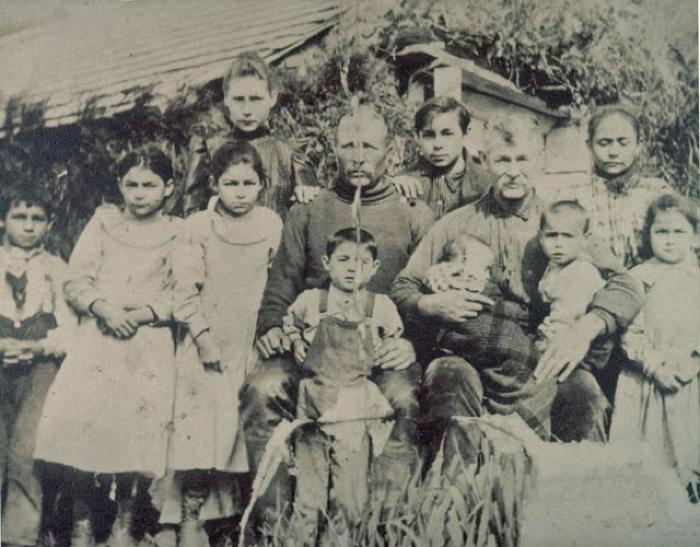Families — Ilat

Families are the basic unit of human societies, and as the structure of societies changes, the organization of families changes as well. In the Kodiak region, archaeological data illustrate that nuclear families—parents and their children— lived together in one-room houses for several thousands of years. Small camps across the landscape suggest that one or two families hunted and fished together, moving in and out of larger winter villages with changes in the seasons.
By about AD 1200, Alutiiq people began to build much bigger houses. Each dwelling had a variety of small sleeping chambers attached to large central room. Historic accounts indicate that large extended families—parents, children, grandparents, aunts, uncles, and cousins—lived in these structures, with up to eighteen people per household. What caused this reorganization of families? Archaeologists believe that as the Native population grew and competition for natural resources increased, families coalesced to harvest, process, and store large quantities of foods and materials.
Today, families continue to be the primary work unit in Alutiiq communities, particularly for subsistence activities. Although groups of people may help each other with subsistence tasks like splitting fish or hauling wood, family members working together conduct most subsistence activities, and some families even maintain specific harvesting areas recognized and avoided by others. Berry patches, for example, are often family-owned. Within the family, there is a division of labor by gender. Men and women tend to different tasks. Men are the primary hunters, wood collectors, and builders. In contrast, women typically gather plants and herbal medicines and process foods.
In addition to the family ties created by blood and marriage, Alutiiq people also build family connections through the Russian Orthodox Church. Every Orthodox child has a krasnaq: a family friend who acts as a godparent and assists that person through life. The bonds between godparent and child are so strong that marriage to the child of one’s godparents is strictly prohibited.
